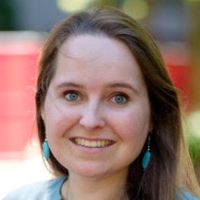- Tóth Kálmán u. 4., 1097 Budapest HUNGARY
- +36 1 309 2651
- lab@anet.krtk.mta.hu
- @AnetiLabs

Carolina Mattsson (Leiden University): Network and temporal structure to monetary flow
Abstract | People and companies move money with every financial transaction they make. We can consider this to be a weighted walk process that gives rise to networks of money flow at larger scales. In this work, we analyze the network and temporal structure of e-money flow through a mobile money system commonly used for one-off digital payments, digital transfers, and money storage. Each activity highlights a different network-structural pattern: hubs, randomness, and geographic clustering. Network analysis also uncovers coordinated gaming of the provider's commission system, which shows up as small near-cliques. When it comes to time, e-money passes through the system in anywhere from minutes to months; this pronounced heterogeneity can inform future models of turnover in money supply. Considering high resolution transaction data as steps in a walk process greatly improves our understanding of the network and temporal structure of the economy. This provides fascinating intuitions about economic systems.
Bio | I am a network scientist developing the analysis tools and modelling frameworks we need to study the economy as a complex system. Currently this has me working as a postdoc with the Computational Network Science group within LIACS at Leiden University, where I research the structure of production networks, real-world transaction data from payment systems, and temporal network representations. Aspects of my research are explicitly policy- or industry- facing, having participated in projects with the Dutch Ministry of Economics and Climate, Statistics Netherlands, the International Monetary Fund, and Telenor Research. Back in May 2020, I became one of the first to graduate from the innovative Network Science PhD program out of the Network Science Institute at Northeastern University. During my PhD I was supported by an NSF Graduate Research Fellowship, an NSF INTERN project with Microfinance Opportunities, and as a member of the Lazer Lab advancing methods in computational social science.